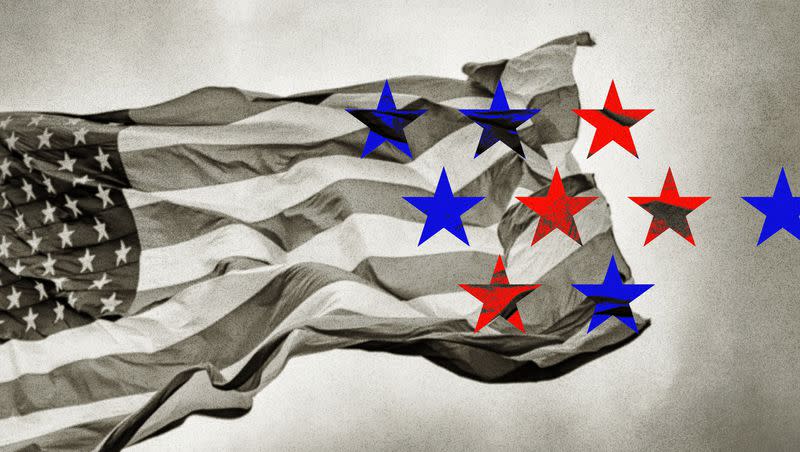Opinion: Volunteer armed forces protect American freedom valiantly

It is fitting that the United States today has an all-volunteer armed forces, because a free land ought to be able to easily recruit volunteers to defend something so precious and important.
The size and strength of the U.S. military is a testament to its founding principles and liberties.
“Over the years, a lot of veterans have described the reasons they volunteered to serve. Many admitted that they were afraid of dying in combat. No one ever asked them if they actually considered the odds of dying — they just went to fight anyway,” Blake Stilwell said, writing for Military.com.
We rely on such people in faraway posts and at trouble spots across the globe to protect our way of life and to allow us to continue to prosper. We think of them as conflicts grow around the world, and any breach of the NATO line could trigger wider wars. We think of them as tensions grow over Taiwan and as terrorists threaten to strike at random times and in random places. We ought to regard them with reverence and honor always.
Regardless of why they signed up, these are they who, in the words of “America the Beautiful,” “more than self their country loved.”
This Memorial Day comes in a year that marks the 50th anniversary of the end of the draft. Some have argued that it’s time to bring it back; that the lack of a draft has made wars easier to wage and has created inequities between the makeup of the armed forces and that of society at-large.
Related
Opinion: We don’t want an army of people who don’t want to be there
Why these veterans in Congress think women should register for a military draft
The arguments are compelling, until you dig a bit deeper. Even under a draft, the armed forces were inequitable. This was especially stark during the Vietnam War when more than 500,000 people were classified as draft dodgers, according to numerous sources. Morale was low at the time, just as casualties were high.
Through the ages, the wealthy sought for ways out, including unjustified medical exemptions, while the poor tended to have few alternatives. The nation’s first draft was during the Civil War. Wealthy draftees at the time could pay someone to substitute for them, or they could pay $300 for an exemption.
In a piece written for the Foundation for Economic Education, Brian O’Brien argued that a volunteer force leads to fewer casualties than a conscripted force because the nation has an interest in sustaining recruitment.
“Americans have different reasons for volunteering to serve, but going overseas to be used as cannon fodder is not one of them,” he wrote.
This is true, unless the situation is so dire that the nation has no choice.
Americans should be thankful that the past half-century has not presented that kind of existential conflict. They should be glad that a volunteer force has more than capably defended the country. As of last year, the nation had 1.3 million active duty personnel, according to usafacts.org.
That is a sign of a healthy democracy. But it does not diminish the role of countless brave inductees through history in any way.
America’s hallowed military cemeteries are filled with the remains of hundreds of thousands, both those who were drafted to the cause and those who volunteered. They all had dreams of growing old, enjoying careers, marriage and family, but the cause of freedom required them to fight and, in too many cases, to give up their lives.
Well over 600,000 soldiers have died in conflicts since the end of the Revolutionary War. Regardless of how they ended up in war, each of these is a hero. They didn’t shirk when called. Each deserves the utmost respect and veneration, not only on Memorial Day but always.
Today, recruitment is down, just as overall volunteerism is down nationwide. It may be the result of the global pandemic. We hope it doesn’t signal a long-term trend.
Pew Research Center says there are 19 million veterans in the United States, which is less than 10% of the population. Various sources put the number of WWII vets at between 100,000 and 180,000, and dwindling fast.
The nation has much to learn from these brave men and women. Stilwell of Military.com said these falling numbers make it “even more imperative to remember the wars fought, to remember the Americans who died and are unable to tell their stories.”
We wish their stories were the last ones of heroic sacrifice that ever would be needed, but freedom will always require the brave and the selfless to respond when needed.

